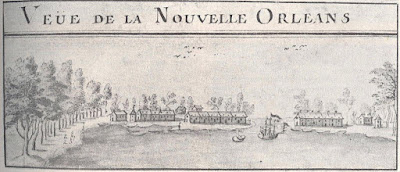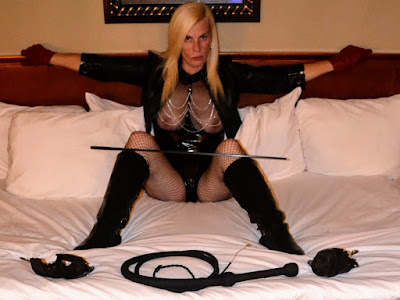Our Erotic Past - by TJ Leone
New Orleans 1721, there were fewer than 700 men settled in the whole colony of Louisiana, a number which excludes men held in slavery. The French government sent 80 women to the colony by ship, in the hopes that Louisiana’s free men would marry these women and would refrain from having sex with Native American women. Many of the migrant women, however, had been serving time for prostitution charges in French prisons, and upon arriving in the colony found the sex trade provided them more independence than any arranged marriage to settlers.
Lulu White
Tales about New Orleans Storyville red-light district in the early 1900s would be incomplete without a mention of the prostitute, brothel madame, and entrepreneur Lulu White. White ran a brothel, the Octoroon Parlour, that housed nearly 40 women. The brothel was a hub for jazz lovers and gentlemen looking to explore the five parlors and 15 bedrooms reserved for special guests. White was forced to close her establishment in 1917 when she became subject to gender discrimination by the city of New Orleans. White holds a place in contemporary culture as she was mentioned in a song performed by Louis Armstrong, “Mahogany Hall Stomp,” and was the honorary namesake to Boston’s jazz club Lulu White’s.
The Red Light District
The term has its origins in the practice not of prostitutes, but their customers: in this case, rail workers who left red lanterns outside the doors and windows of the houses where they met prostitutes between their own work shifts. If their boss needed to find them, he could look for the light.
Burlesque
Burlesque began in the United States when Lydia Thompson brought her troupe, the British Blondes, to New York City stages in 1868.
They were independent, confident women who performed on stage and defied most of the social and cultural mores of women of the day. And they were as wildly popular as they were reviled.
Most people in ‘proper’ society viewed these ladies as being in the same category as common street prostitutes -- selling their bodies for sex.The secret of burlesque dancers’ sexual appeal was not that they revealed skin and sensitive body parts -- like modern-day strippers. Burlesque was so scandalous because women showed off their feminine shapes.
Josephine Baker
‘I wasn’t really naked. I simply didn’t have any clothes on.’
Her moves were unmistakable: rhythmic hands, gyrating hips and elastic legs that propelled her round the dancefloor like a flurry of hypnotic windmill sails. New York’s ‘highest-paid chorus girl in vaudeville’ would truly make her name in deco Paris at ‘La Revue Nègre’ in the mid 1920s. Ultimate womaniser, Ernest Hemingway, called her ‘the most sensational woman anyone ever saw.’ Yet, despite her popularity and fame, Rosa Parks’ fight was hers too. When she arrived back in America in the 1950s she was refused reservations at 36 hotels. She took her battle to the cabaret clubs, refusing to perform to racially-segregated audiences (despite a $10,000 offer by a Miami club). Not even threatening calls from the Klu Klux Klan scared her. In 1963, she stood beside Martin Luther King at the March on Washington. She was the only official female speaker there.
Maya Angelou
Dr. Maya Angelou only ever earned honorary degrees, but she did have quite a variety of jobs over the years. You probably know her as a poet and memoirist, but if you’ve actually read her series of memoirs then you know that she was at various times also a calypso singer, a Tony-nominated Broadway actress, a paint scraper at a body shop, and San Francisco’s first female streetcar driver. When she was fairly young, Angelou worked as a prostitute and brothel manager, activities which she describes candidly in her 1974 memoir Gather Together In My Name.
Nina Hartley
In 1982, during her sophomore year of nursing school, she started working as a stripper at the Sutter Cinema and later the Mitchell Brothers O’Farrell Theatre. She made her foray into the world of pornographic movies during her junior year in 1984. Her debut performance was in the film Educating Nina.Hartley considers herself an outspoken sex-positive feminist. Addressing other women, she said, “Sex isn’t something men do to you. It isn’t something men get out of you. Sex is something you dive into with gusto and like it every bit as much as he does.”
 Lady Gaga
Lady Gaga“I was working in strip clubs when I was 18. I come from a wealthy Italian family, went to a good school. You’re meant to live with Mom and Dad until they die. I went against all I was brought up to be; I moved out of my home, wouldn’t take any help from my parents and supported myself with waitressing jobs and stripping.”










Comments
Post a Comment